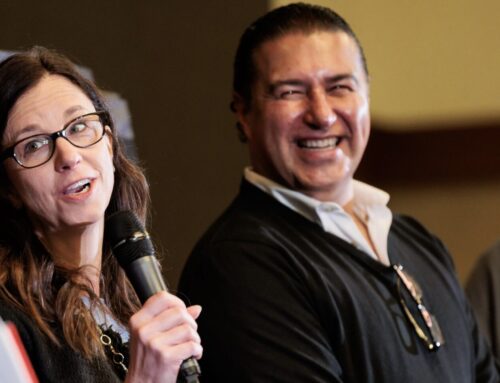Feedback is best given face to face. Only a small percentage of communication is in the words we use. Tone, body language, inflection and non-verbal signals all combine in everyday speech to make complex, nuanced conversations. How can we best manage this when an organisation is working remotely?

USE VIDEO CALLS WHENEVER POSSIBLE
These are a better alternative to only audio, wherever possible. Studies have shown that people are more engaged, efficient and less likely to be distracted or multi-tasking when on a video call. It also provides a platform for more meaningful connection between you.
REFLECT ON THE NON-VERBAL CUES WHEN GIVING FEEDBACK
Reflect on the non-verbal cues you may be subconsciously signalling. Most of us do this without realising it, but when discussing sensitive topics through the veil of technology it is important to be aware of the impact your cues are giving off.
CHECK IN WITH YOURSELF
Do you have good camera quality and lighting so the other person can see your face clearly? Are you multitasking or getting distracted by something off-screen, giving the impression that this conversation is not important?
Yes, you may be at home where the rules are slightly more relaxed but is your appearance and setting appropriate for this conversation? You want to avoid conducting a serious discussion dressed in a week-old hoodie while your cat winds back and forth in front of the camera?
Most importantly – avoid artificially creating ‘correct’ body language. Authenticity is key.
UNDERSTAND
We all need time to adjust. It is important to be aware of the emotional process of adapting to new circumstances, which will affect some more than others. Some may feel socially isolated very quickly or anxious about losing their usual routine. Be aware of people’s situations and understand that there is not a ‘one-size-fits-all solution’.
OVER-COMMUNICATE
With the lack of physical proximity, tricky conversations get put off, requests for help can feel harder to make and that casual, friendly chat between colleagues doesn’t happen as often. Be clear on what the whole team is working on, encourage video calls and short meetings between them and be very clear if areas are being sidelined in this working shift.
KEEP IT FACTUAL
Our brains have been fine-tuned over thousands of years to protect us from harm. At any cost. When someone is feeling attacked they are instinctively going to go into fight or flight survival mode and any useful message may be lost as both sides defend their point.
Speak to your colleague with data and always aim and provide proof of what you are saying. Emotions are personal but facts can’t be disputed. This shouldn’t be a blame exercise, or a lengthy telling-off, but an opportunity for the two (or however many) of you to identify a problem and come up with ways to address it.
COMMIT
To regular feedback sessions that are set up in everyone’s diary. These may sometimes be very brief, with nothing but what’s working well on both sides, but it can be an important step in ‘normalising’ the feedback culture in your team.
Top Tips:
- Go into the meeting with proof or data to back up what you are saying
- Have a clear outcome before you go into the discussion. Ask yourself,what do you want to start, stop, and transform?
- See this as a joint enterprise. How can you work on this together? What can you do to facilitate change?
- Be clear about your expectations and set SMART Goals. These should be:
-
-
-
-
-
-
-
-
- Specific
- Measurable
- Attainable
- Relevant
- Time-bound
-
-
-
-
-
-
-
When in a position of authority it can feel like you must be the fount-of-all-knowledge but no-one is above receiving feedback as well. Self-evaluate, touch base with your team and ask if there’s anything further you can improve as well.
No-one is perfect. Listen, take action, grow.
Here you can download the Breakthrough Feedback Framework Action Sheet.
Curious to learn more?
Register your interest to our upcoming Webinar about being Full On at Work and At Home, led by Breakthrough Global’s Managing Director Zannah Ryabchuk, by emailing partnerships@breakthroughglobal.com.





